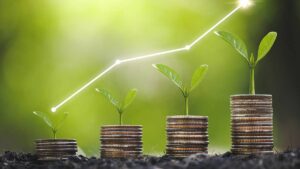The Ethical Investor: Fidelity says diverse stakeholders to drive progress in 2024

Pic: Getty Images
- Fidelity International says ‘system-wide stewardship’ will be a driver of the ESG agenda in 2024
- Fund manager has identified four themes that underpin its thinking around system-level stewardship
- Financing to reach climate targets remains significant challenge for corporates and financial institutions
‘System-wide stewardship’, where investors engage with a broad spectrum of stakeholders on sustainability issues, will be a driver of the ESG agenda in 2024, according to fund manager Fidelity International.
In their 2024 outlook Fidelity International says the aim is to help create a favourable policy and regulatory environment that enables and incentivises companies to operate more sustainably.
The fund manager has identified four themes that underpin its thinking around system-wide stewardship including:
- Climate change
- Nature loss
- Strong and effective governance
- Social disparities
Transition finance needed for companies
Global head of stewardship and sustainable investing Jenn-Hui Tan says climate financing remains a significant challenge for corporates and financial institutions.
“Gradually, frameworks are emerging to help companies put in place robust strategies to meet their net zero targets,” he says.
“As more businesses publish credible transition plans, we expect further developments in transition finance, including innovation in sustainable debt instruments.”
Tan says governments are seeking to close policy gaps to make green technologies cheaper while regulators are working to channel transition financing to the right places.
He says system-wide initiatives such as the Inflation Reduction Act in the US provide support to develop technologies like green hydrogen and sustainable aviation fuels.
“Political will such as this should help to develop decarbonisation pathways for sectors where the transition is either technologically difficult or too expensive,” he says.
“In the EU, the introduction of the Carbon Border Adjustment Mechanism is designed to create a level playing field between companies manufacturing within the bloc and exporters to it, by ensuring that the carbon price of incoming goods is equivalent to the carbon price of production within the EU.”
Social impacts of transition a top priority
However, Tan says the social ramifications of the climate change transition are also front of mind for organisations.
“We continue to engage with firms not only on the infrastructure costs of decarbonisation but also retraining workers as requirements change,” he says.
“At government level, policymakers are looking for ways to protect those least able to bear the costs from up-front transition commitments as new technologies are built out.
“The prize is a clean energy revolution with lower operating costs and increased energy security.”
Nature loss a focus
Tan says COP15 in 2022 proved to be a turning point in recognising the impact of nature loss as part of the climate crisis.
“Healthy carbon sinks and ecosystems play a significant role in achieving net zero, while climate change is a direct driver of declining biodiversity,” he says.
Tan says the economic implications are clear with it estimated that more than half of global GDP is moderately or highly dependent on nature.
He says the ties between climate and nature are also becoming more evident in certain industries and some like mining, will need to play leading roles in a successful transition.
He says companies are already considering how to implement the recently published Taskforce on Nature-Related Financial Disclosures (TNFD) with moves to deliver a standardised language to report on nature.
“Nature loss is notoriously difficult to gauge given the absence of a universal metric,” he says.
“Innovative technologies, like the nascent field of bioacoustics, are trying to remedy this by developing alternative measurement systems.”
He says elements of the TNFD have already been included in the EU’s Corporate Sustainability Reporting Directive (CSRD), a form of data collection that starts in 2024 for some firms.
“This is the most comprehensive reporting standard to date,” he says.
“The CSRD requires companies to report on their own environmental and social impact as well as sustainability-related risks to their business.”
Tan says furthermore the International Sustainability Standards Board has published its own version of sustainability disclosure standards designed to be adopted globally and focused initially on climate.
He says due diligence of supply chains is also gaining attention following the EU Deforestation Act and other forthcoming rules aimed at mitigating impacts on human rights.
“Regulation on this scale sounds daunting, but sustainability reporting and how it links to financial reporting is an important part of mitigating the risks of climate change, nature loss, and social issues,” he says.
“It should also enable companies to scale up activities that not only align with the transition but drive change across the global economy.”
Related Topics
UNLOCK INSIGHTS
Discover the untold stories of emerging ASX stocks.
Daily news and expert analysis, it's free to subscribe.
By proceeding, you confirm you understand that we handle personal information in accordance with our Privacy Policy.








